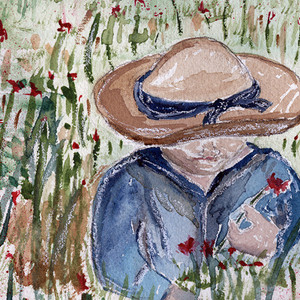09 Nov Wed 2016
Why Drinking Tea is Good for You©
Why Drinking Tea is Good for You©
By Arlene Wright-Correll

Here at Home Farm Herbery we blend many teas for our customers. We blend herbal tea, Chai, Tisanes, Caffeine-Free and teas containing caffeine.
Matter of fact we offer over 79 different kinds of teas and they can be found either on our Home Farm Herbery page or on the page at our Etsy store.
We grow most everything here except the tea that sometimes is the base of our teas.
We believe, after reading many scientific articles that tea can boost exercise endurance. Scientists have found that the catechins (antioxidants) in green tea extract increase the body's ability to burn fat as fuel, which accounts for improved muscle endurance and that drinking tea could help reduce the risk of heart attack.
The antioxidants in tea might help protect against a boatload of cancers, including breast, colon, colorectal, skin, lung, esophagus, stomach, small intestine, pancreas, liver, ovarian, prostate and oral cancers. But don’t rely solely on tea to keep a healthy body because tea is not a miracle cure, after all. While more studies than not suggest that teas have cancer-fighting benefits, the current research is mixed.
Tea helps fight free radicals. Tea is high in oxygen radical absorbance capacity (“ORAC”), which is a fancy way of saying, that it helps destroy free radicals (which can damage DNA) in the body. While our bodies are designed to fight free radicals on their own, they’re not 100 percent effective all by itself.
According to some reports regular tea drinking might also counteract some of the negative effects of smoking and might even lessen the risk of lung cancer.
I have read that Tea could be beneficial to people with Type 2 diabetes. Studies suggest that compounds in green tea could help diabetics’ better process sugars.
Tea might be an effective agent in the prevention and treatment of neurological diseases, especially degenerative diseases (think Alzheimer’s). While many factors influence brain health, polyphenols in green tea may help maintain the parts of the brain that regulate learning and memory.
Green tea has been found to improve bone mineral density and strength.
Though most of the teas we make here are herbal teas, once in while we have to add a tea base which we buy from FREE Trade countries.
Here are some of the teas that we use.
Black tea: Made with fermented tea leaves, black tea has the highest caffeine content and forms the basis for flavored teas like chai, along with some instant teas. Studies have shown that black tea may protect lungs from damage caused by exposure to cigarette smoke. It also may reduce the risk of stroke.
Green tea: Made with steamed tea leaves, it has a high concentration of EGCG and has been widely studied. Green tea’s antioxidants may interfere with the growth of bladder, breast, lung, stomach, pancreatic, and colorectal cancers; prevent clogging of the arteries, burn fat, counteract oxidative stress on the brain, reduce risk of neurological disorders like Alzheimer’s and Parkinson’s diseases, reduce risk of stroke, and improve cholesterol levels.
White tea: Uncured and unfermented. One study showed that white tea has the most potent anticancer properties compared to more processed teas.
Oolong tea: In an animal study, those given antioxidants from oolong tea were found to have lower bad cholesterol levels. One variety of oolong, Wuyi, is heavily marketed as a weight loss supplement, but science hasn’t backed the claims.
Pu-erh tea: Made from fermented and aged leaves. Considered a black tea, its leaves are pressed into cakes. One animal study showed that animals given pu-erh had less weight gain and reduced LDL cholesterol.
There are lots of health benefits to herbal teas and they are made from herbs, fruits, seeds, or roots steeped in hot water, herbal teas have lower concentrations of antioxidants than green, white, black, and oolong teas. Their chemical compositions vary widely depending on the plant used.
Some of the many herbs we use include ginger, ginkgo biloba, ginseng, hibiscus, jasmine, rosehip, mint, rooibos (red tea), chamomile, and Echinacea
We make Chamomile tea because we have read that its antioxidants may help prevent complications from diabetes, like loss of vision and nerve and kidney damage, and stunt the growth of cancer cells.
We use Echinacea as it is often touted as a way to fight the common cold, though the research on Echinacea has been inconclusive.
We like to use Hibiscus once we read a small study that found that drinking three cups of hibiscus tea daily lowered blood pressure in people with modestly elevated levels.
We often add Rooibos (red tea) to our blends. This is a South African herb that is fermented. Although it has flavonoids with cancer-fighting properties, medical studies have been limited.
We love the fact that Tea has the power to calm you down.
We things get tough take a moment and make some tea and take the time to sit down and drink it.
May the Creative Force be with you,
Arlene Wright-Correll
Home Farm Herbery

